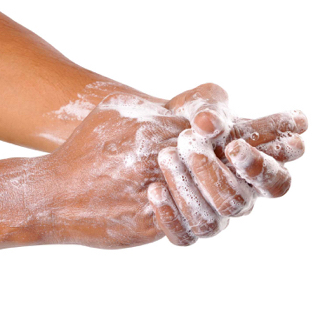Title Page
-
Date Conducted
-
Responsible Persons
-
Audit Persons
Weekly Audit
Safety Checks
-
All dry store food is within its ‘use by’ date and best before date
-
All refrigerated food is within its ‘use by’ date and best before date
-
All frozen food is within its ‘use by’ date and best before date
-
All food is labelled in line with Marstons Policy.
-
Delivery temps are carried out as per policy. Chilled must be 8oC or less. Frozen must be 12oC or less. Any reading above the critical limit must be circled and reported immediately. Complete the problems found/action taken box
-
FIFO rule is carried out as per policy
-
Opened items must be correctly labelled with a day dot or discard date label and batch information from the supplier must be maintained to keep track of when food should be used or thrown away and maintain traceability
-
Evidence of date tampering
-
No sign of cross contamination in fridges or freezers
-
Fridges and chilled display equipment should be set at 5˚C or below to ensure that chilled food is kept at 8˚C or below
-
All foods covered to preserve quality
-
Unfit food must be discarded immediately. If it is being returned to the supplier, unfit food should be clearly labelled and stored separately from other foods
-
Food should be kept off the floor and placed in covered food grade containers
-
Food is being defrosted in line with company policy.
-
Adequate supply of hot water, soap at every dispenser and blue roll, and handwash stations clean.
-
Prepare raw meat, poultry, unwashed vegetables and other foods in different areas
-
Keep surfaces clear and maintain structure and equipment properly and clean. Keep glassware out of food preparation areas. Store ingredients in glass bottles and jars in a tub on a low shelf.
-
Minimise the length of time perishable foods are kept at room temperature
-
Separate chopping boards are required for raw meat, raw fish, unwashed fruit and vegetables, washed fruit and vegetables and readytoeat food
-
Replace chopping boards that are scratched, pitted or scored. Dirt and food poisoning bacteria can collect in any areas where the board is not smooth
-
Dedicated and labelled temperature probes, tongs, foil, cling film dispensers D2 and D10 trigger sprays must be available for raw and readytoeat food areas to avoid the risk of cross contamination
-
Sinks must be dedicated for food preparation, cleaning and hand washing to avoid the risk of crosscontamination
-
Correct cooking to 75oc is carried out, and team are knowledgable of this
-
Team members must know what causes acrylamide to form in food. “Go for Gold” Fry at a max temp of 175°C. Use ovens at a max temp of 200°C
-
Cool hot food down as quickly as possible and then put it in the fridge. Food should be cooled at room temperature for a maximum 90 minutes and then refrigerated using the largest refrigerator available
-
Keep foods covered during cooling to reduce the risk of contamination
-
Ensure clean undamaged crockery, cutlery or glassware is used for service. Serving cloths are clean and not allowed to come in contact with food and front of house team members wash their hands correctly
-
Ice cream scoops should be kept clean a suitable container. Storing scoops in water or sanitiser risk growth of bacteria, taint and cross contamination of allergens. Separate scoops should be maintained for vegan and dairy ice cream
-
To prevent confusion, an allergy flag must be inserted into the dish which is for the guest with a food allergy or intolerance
-
An adequate number of handheld thermometers must be available to be used for probing foods or checking between pack temperatures inside fridges and freezers
-
Ice machine clean and free from any build up, with ice scoop stored in container
-
All team members must wear clean uniforms when working with food. Team members with long hair must keep it tied back and head covering must be worn in food preparation areas
-
Outdoor clothing and personal belongings must not be stored in food preparation and storage areas
-
Hand washing technique signs should be displayed. Team members must wash their hands thoroughly for at least 20 seconds using bactericidal soap and water, dry their hands using disposable hand towels and then switch off the tap using the towel to avoid recontamination their hands
-
Wash hand basins must be kept free from obstruction to allow hand washing to take place
-
Walk in fridge floor, walls and shelving clean
-
Walk in freezer floor, walls and shelving clean & organised.
-
Potwash area clean including behind and underneath
-
Blue waterproof plaster must be provided and used to cover wounds
-
Changing rooms and toilets should be kept clean and tidy. Clean and dirty uniforms must be kept separate and neatly stored
-
FOH allergy Check
-
BOH Allergy Check
-
Walls, floors and ceilings must be well maintained. There may be minor defects but significant repair issues e.g. extensive areas of damaged flooring must have evidence that they have been logged with Maintenance and are pending repair. Surfaces must be maintained in a sound condition and be easy to clean and where necessary, sanitise
-
Food equipment must be maintained in good repair and condition
-
floor junctions clean
-
Regular cleaning taking place
-
Deep clean tasks are carried out
-
The team must be trained in the two stage cleaning process for cleaning and sanitising food and hand contact surfaces, ensuring that correct dilutions of chemicals are made and allowing the correct contact time for the chemicals to be effective using clean disposable cloths
-
Cleaning equipment is in poor condition and should be kept clean or replaced in order that it may be effective
-
Ensure all waste bins are cleaned regularly, not allowed to overflow and emptied at the end of each day
-
Keep the back yard clean, well maintained. Ensure redundant equipment is disposed of. Ensure waste is segregated for recycling, cardboard is flattened or baled where appropriate, bins are kept clean and lids on bins are kept closed, gas bottled laid down and stored safely, shed clean and tidy and no cigarette butts on the floor.
-
Functioning electric fly killer is required in all kitchens with clean tray.
-
All team members must complete the E learning training modules relevant to their job role
-
Food safety records are complete and accurate with no gaps, any gaps should be recorded in the problems found/actions taken.
-
Ensure hot foods are held at a minimum temperature of 63°C if this temperature is not achieved the food should be discarded after two hours. Temperature checks must be completed every two hours during each service session
-
Probes must be checked for accuracy weekly. Probes must be numbered and checked in iced and boiling water: The readings in iced water should be between 1°C and 1°C. The readings in boiling water should be between 99°C and 101°C. It is essential to know that our probes are working properly, so we can rely on their readings
-
All items displayed on carvery, breakfast, buffets and ice cream parlour must have individual calorie signs plus the “Adults need” statement. Postmix must have either Britvic strut card or main drinks menu displayed on the bar with the calorie information
-
Team know fire evacuation procedure
-
Fire exits clear and door in working order, with fire exit signage on.
-
All fire fighting equipment to be in the correct place, tags and pins in place and pressure gauge in the green. Log this job with the maintenance helpdesk
-
No safety hazards noted
-
Extract filters & canopy must be kept clean, they must be in place when the kitchen is trading and must be in good repair
-
Microwaves must be located on a secure base, in a safe position and must not be stacked above shoulder height for the average person to prevent the risk of spillages and potential burns
-
First aid kit to be fully stocked
-
Provide clean, dry oven cloths or other suitable PPE for use with hot utensils and equipment. Team should be reminded of the need to use the PPE provided e.g. when removing hot food from microwaves. Retraining is required
-
Ensure all chemicals are approved for use by the company. Safely dispose of any unauthorised chemical
-
Chemicals in use should be kept out of reach of guests
-
Waste oil must be stored correctly in shed.
FY24 Expectations
-
Carvery deck looks clean and sharp, and is topped to adequate levels
-
Dishes in kitchen match brand specs, probe over 75oc and are below a ticket time of 25 mins








